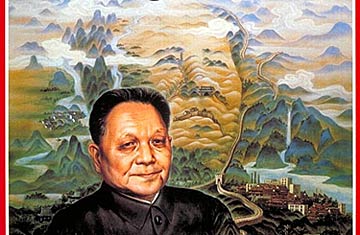
(6 of 20)
They tell the stories in China now, some shamefacedly, some still burning with indignation at how the country was driven to chaos. There is a onetime Red Guard still horrified by a single memory. He was at high school in Peking and was awakened one night. A "struggle" meeting was going on in the school courtyard, the Red Guards struggling against two teachers and beating them. He crept down to the courtyard at 5 a.m. and there lay the bodies of the two teachers, beaten to pulp, dead. Another onetime student recalls: "My brother was at Peking University; he was beaten to death; then my mother committed suicide." I spoke to a brigade leader in a distant rural commune who had been hung from a stable rafter for days, suspended by his arms tied behind him, while Red Guards beat him with fists, sticks, irons. Finally his own peasants rescued him. In Chongqing, I spoke to the vice mayor, old beyond his years. He was sent down to an iron mine where he worked underground for three years.
Being "sent down," or Xiafang, as the Chinese call it, was very simple punishment. "Stinking intellectuals" were supposed to learn from the peasants what life is like when one must stoop for hours transplanting rice seedlings in the wet muck. Horror stories spurt — not grisly horror like eye gouging (which was reported only in south China), but simpler torment like being interrogated round the clock by Red Guards.
High and low alike, anyone with an education, anyone suspected of murmuring protest, in the bureaucracy, or the universities, or the army, could be sent down. All universities, except for military research centers, were closed, some for three years, some for five, some for a full ten. And, as dogma drove the spike into the flesh of the country, even the revered ancients of the revolution were pushed to death. Li Ta, one of the original founding fathers of the Communist Party of China in 1921, was "struggled" against until he committed suicide. He Long, a Robin Hood peasant bandit who became a marshal of the Red Army and helped conquer south-central China for the revolution, had been a hero. He Long suffered from diabetes, but the hospital denied him water, then injected him with glucose instead of insulin. So he died in 1969.
And then, after the street violence of the Red Guard youngsters had subsided, and Lin Biao had been eliminated, it became worse. All power fell into the hands of the palace court that surrounded Mao.
Jiang Qing, of course, wanted to be named Premier to replace Chou Enlai. She named as Minister of Health Liu Xiangping, one of those ruthless women who abound in Chinese history. Liu was not only ignorant of medicine but devoid of decencies. She made the hospitals of the capital hostels of despair. Few could escape her clutch. Old veterans and ranking bureaucrats pleaded not to be sent to the hospitals from which they feared they would never emerge alive. They were told it was the will of the party and off they went. Liu Xiangping was the wife of Xie Fuzhi, chief of the secret police; he fingered victims, she executed.
